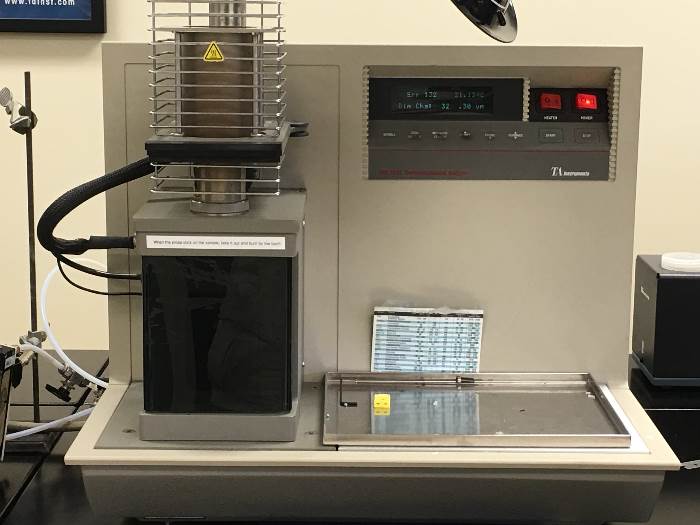

Thermo Mechanical Analysis (TMA) is used to characterize the linear expansion, glass transitions and softening points of materials by applying a constant force to a sample while changing the temperature. For expansion measurements, it relies on a sample with minimum down pressure. Other constant force tests include penetration, bending, tension, shrinkage, swelling and creep measurement (sample motion measured as a function of time under an applied load).

Most materials undergo changes in their thermomechanical properties during heating or cooling. For example, phase changes, sintering steps, or softening may occur in addition to thermal expansion. TMA analyzes can thus provide valuable information about the composition, structure, production conditions or application possibilities for various materials. The application range of devices for thermomechanical analysis ranges from quality control to research and development. Typical areas include plastics and elastomers, paints and paints, composite materials, adhesives, films and fibers, ceramics, glass, metals and composite materials.
To get an appointment, to get more detailed information or to request an evaluation, you can ask us to fill in our form and reach you.